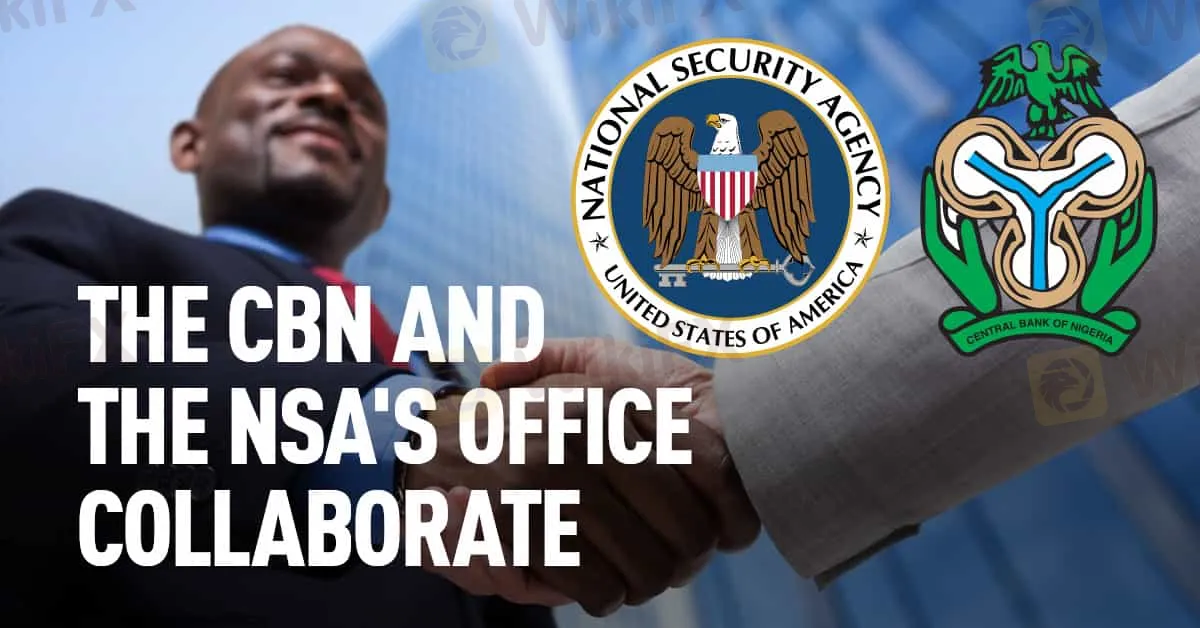简体中文
繁體中文
English
Pусский
日本語
ภาษาไทย
Tiếng Việt
Bahasa Indonesia
Español
हिन्दी
Filippiiniläinen
Français
Deutsch
Português
Türkçe
한국어
العربية
TO FIND FOREX SPECULATORS AND ECONOMIC SABOTEURS, THE CBN AND THE NSA'S OFFICE COLLABORATE.
Abstract:"The primary objective of this alliance is to identify, investigate and penalise individuals and organisations involved in wrongful activities within the Forex market."

“The primary objective of this alliance is to identify, investigate and penalise individuals and organisations involved in wrongful activities within the Forex market.”
In the announcement below, the Office of the National Security Adviser said that it will work with the Central Bank of Nigeria to stop foreign exchange speculation in the nation.
According to a statement from the Office of the National Security Adviser's chief of strategic communication, Zakari Mijinyawa, the action is a component of measures to stabilize the economy and bring order back to the country's foreign exchange market.
The Central Bank of Nigeria (CBN) and the Office of the National Security Adviser (ONSA) are working together to solve issues affecting the country's economic stability in an attempt to protect Nigeria's foreign exchange market and stop speculative actions.
It is admirable that the CBN has taken aggressive steps to stabilize the foreign exchange market and boost economic activity.
However, the actions of local and foreign speculators acting through a variety of channels are undermining the efficacy of these attempts and aggravating the depreciation of the Nigerian Naira, as well as adding to inflation and economic instability.
Remember that the CBN implemented a comprehensive strategy to improve the liquidity in the foreign exchange market in response to the volatility of exchange rates. This strategy included the unification of market segments, the settlement of outstanding foreign exchange obligations, the introduction of new operational mechanisms for Bureau De Change operators, the enforcement of the Net Open Position limit for commercial banks, and the adjustment of the remunerable Standing Deposit Facility cap.
The Economic and Financial Crimes Commission (EFCC) has established a 7,000-man special task force across its 14 zonal commands to crack down on dollar racketeers in an effort to relieve pressure on the naira.
However, recent intelligence assessments have shown that there are still illegal activities taking place in the Nigerian foreign currency market. As a result, the ONSA and CBN are working together to address these violations. Coordinated efforts with important law enforcement organizations, such as the Nigeria Police Force (NPF), the Nigeria Customs Service, the Economic and Financial Crimes Commission (EFCC), and the Nigeria Financial Intelligence Unit (NFIU), would be part of this cooperation.
The principal aim of this partnership is to methodically detect, delve deeply into, and suitably punish individuals and entities implicated in illicit actions inside the foreign exchange market. Through the utilization of these institutions' knowledge, our goals are to prevent unscrupulous activities, safeguard investor interests, and encourage sustainable economic progress.
This cooperative endeavor highlights Nigeria's government's dedication to enhancing its Anti-Money Laundering and Counter Financing of Terrorism (AML/CFT) system and removing the country off the Financial Action Task Force's gray list. The nation's economic well-being will also be advanced, investor trust will be fostered, and a stable and transparent foreign exchange market will be ensured.
The main players in the futures market are speculators. Any person or business that takes on risk in the hopes of making money is considered a speculator. These profits are available to those who engage in low-cost and high-value trading.
Speculators profit from changes in currency exchange prices in the foreign exchange market. For instance, a speculator may purchase the EUR/USD pair in the hopes that the euro will appreciate in value relative to the US dollar. The trader may be able to sell the pair at a profit if the euro does truly appreciate.

Disclaimer:
The views in this article only represent the author's personal views, and do not constitute investment advice on this platform. This platform does not guarantee the accuracy, completeness and timeliness of the information in the article, and will not be liable for any loss caused by the use of or reliance on the information in the article.
Read more

The Daily Habits of a Profitable Trader
Every professional trader follows a structured approach to ensure they are well-prepared, disciplined, and able to seize opportunities with confidence. Whether you are a seasoned investor or an aspiring trader, adhering to a robust daily checklist can significantly enhance your performance. Use this checklist to check if you are a qualified trader

How a Housewife Lost RM288,235 in a Facebook Investment Scam
A 47-year-old housewife in Malaysia recently fell victim to an online investment scam, losing a substantial sum of RM288,235 after engaging with a fraudulent scheme advertised on Facebook.

A Trader’s Worst Mistake: Overlooking Broker Reviews Could Cost You Everything
In today’s digital age, reviews influence nearly every decision we make. When purchasing a smartphone, television, or home appliance, we pore over customer feedback and expert opinions to ensure we’re making the right choice. So why is it that, when it comes to choosing an online broker where real money and financial security are at stake many traders neglect the crucial step of reading reviews?

Interactive Brokers Launches Forecast Contracts in Canada for Market Predictions
Interactive Brokers introduces Forecast Contracts in Canada, enabling investors to trade on economic, political, and climate outcomes. Manage risk with ease.
WikiFX Broker
Latest News
The Withdrawal Trap: How Scam Brokers Lure Victims into Paying More
FCA to Investors: Think Twice Before Trusting These Brokers
Trump\s tariffs: How could they affect the UK and your money
Trump gambles it all on global tariffs he\s wanted for decades
TradingView Brings Live Market Charts to Telegram Users with New Mini App
Trump tariffs: How will India navigate a world on the brink of a trade war?
Interactive Brokers Launches Forecast Contracts in Canada for Market Predictions
Authorities Alert: MAS Impersonation Scam Hits Singapore
IG Group Acquires Freetrade for £160M to Expand UK Investment Market
U.S. March ISM Manufacturing PMI Released
Currency Calculator







